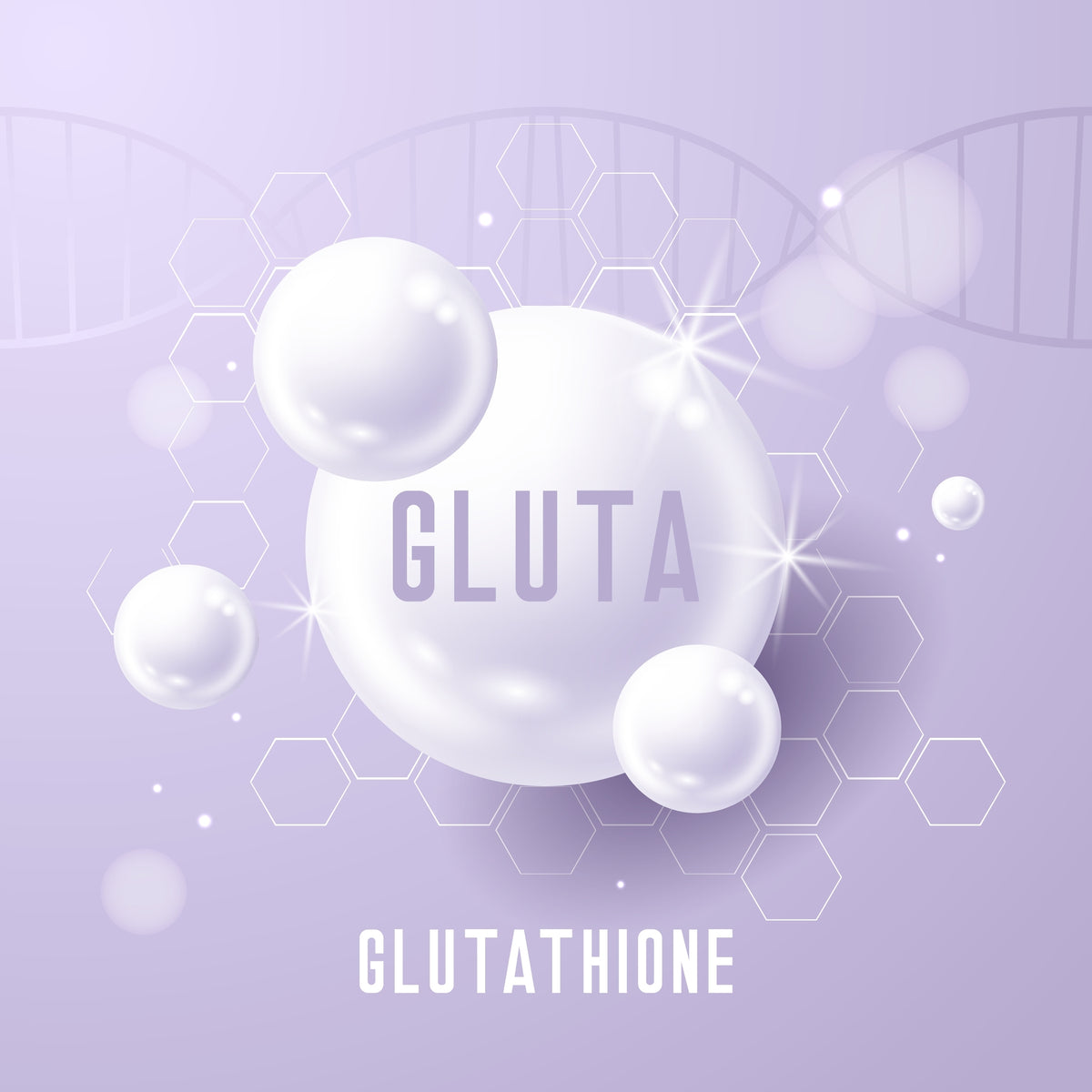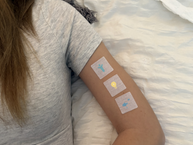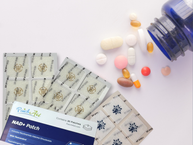https://www.ncbi.nlm.nih.gov/pmc/articles/PMC6770193/
Glutathione is an antioxidant that your body produces. It plays a role in areas such as maintaining normal oxidative status, detoxification, and immunity. Glutathione deficiency and suboptimal glutathione levels can cause mild or more severe symptoms. It may even be linked to a wide range of clinical conditions including cancer and diabetes!
Glutathione is a nutrient in many foods, but glutathione patches have higher amounts of glutathione than what you can get from food. Should you ask your doctor about using a Glutathione Plus Patch? Here’s some information on glutathione, how to prevent and treat glutathione deficiency, and how to use glutathione patches.
Glutathione Deficiency Symptoms and Effects
Severe glutathione deficiency or even suboptimal levels of glutathione can lead to glutathione deficiency symptoms. They may include these.
- Fatigue
- Trouble concentrating or remembering
- Difficulty sleeping
Low glutathione levels may also be linked to these serious conditions.
- Development of type 2 diabetes or poor blood sugar control.
- Certain types of cancer
- Multiple sclerosis
- Hypertension
- Parkinson’s disease
- Alzheimer’s disease
- Mental health disorders
What Causes Glutathione Deficiency?
When thinking about what causes glutathione deficiency, there are a few different reasons.
Glutathione synthetase deficiency is a lack of proper function of the enzyme that makes glutathione in your body. It causes severe glutathione deficiency symptoms, but the condition is rare. It affects only dozens of people worldwide.
Glutathione deficiency symptoms may also happen in these situations.
- As the natural result of aging.
- If your diet is low in protein.
- If your diet is low in certain nutrients.
- With certain infections or chronic diseases.
- If you are under a lot of stress.
If you think you may have glutathione deficiency, it’s best to ask your doctor for a test. You may want to discuss a Glutathione Plus Patch as a way prevent or treat glutathione deficiency, too.
How to Test for Glutathione Deficiency
If you’re wondering about how to test for glutathione deficiency, here’s the scoop. It’s easy to test glutathione levels using a blood test that you get in a standard lab. You can ask your doctor to put in the order for you. The test may look at levels of glutathione or a similar substance in your red blood cells or in your plasma.
The test can be helpful. But, it may not be completely accurate for every individual. That’s because some people have different biological setpoints for glutathione production. You and your doctor may want to decide to diagnose glutathione deficiency based on a blood test as well as symptoms if you have any. Then you can together figure out how to prevent or treat glutathione deficiency. A Glutathione Plus Patch may be one option.
Getting Glutathione from the Foods You Eat
The building blocks for glutathione are in many nutritious foods. They include sulfur-containing foods, such as these.
- Animal-based proteins, such as beef, fish, and chicken.
- Broccoli, cauliflower, brussels sprouts, kale, and other green or cruciferous vegetables.
- Onions and garlic.
The thing is, glutathione patches can have way more glutathione than what is in food or what your body can make to prevent or treat a glutathione deficiency.
More Ways to Boost Glutathione Through Diet
With so many roles of glutathione, and so many interactions in your body, you may not be surprised to learn that other nutrients can affect glutathione levels and activity in your body. First, three amino acids are the main components of glutathione, and the main one is called cysteine. Whey protein and other protein-rich foods, such as meat, fish, poultry, yogurt, and beans, are sources of cysteine or other sulfur-containing amino acids.
Certain other nutritious foods or specific nutrients can support higher glutathione levels and reduce the chances of glutathione deficiency. These are some examples.
- Vitamin C is an antioxidant that may help your body use less glutathione. Berries, green vegetables, onions, bell peppers, and tomatoes are all sources.
- Selenium is a mineral that is necessary for glutathione activity. Brazil nuts are the best sources, but it can also be in dairy and meats, as well as brown rice.
- N-acetyl-cysteine (NAC) contains cysteine, which is a main amino acid that makes up glutathione.
- Milk thistle is an herbal supplement that has an antioxidant called silymarin.
- Riboflavin (vitamin B2) is needed for glutathione to perform its roles.
Glutathione patches can have higher amounts of these nutrients than the amount you get from food. Plus, the nutrients are all in one place - there’s no need to worry about getting the right types of foods every day or trying to get a variety of herbal supplements to support glutathione levels.
Glutathione Patches
Glutathione patches can make it easy to get your glutathione. The Glutathione Plus Patch from PatchAid has 100 milligrams of L-glutathione (the reduced active form). That’s about the amount of glutathione as in 2 pounds of broccoli!
And while oral glutathione supplements may have side effects, glutathione patches don’t cause digestion-related problems. Glutathione pills may cause cramps and bloating. If you want to know how to use glutathione patches to prevent and treat glutathione deficiency, it’s easy. After clearing it with your doctor, just peel off the backing, stick it onto a clear, dry area or skin, and leave it on for up to 8 hours.
The Glutathione Plus Patch from PatchAid doesn’t just have glutathione. It also has each of the supporting nutrients and compounds mentioned above. It has:
- N-acetyl-cysteine (NAC)
- Vitamin B2 (riboflavin)
- Vitamin C
- Milk thistle
It also has these.
- Alpha-lipoic acid (ALA)
- Molybdenum
- Manganese
- Coenzyme Q10
- PQQ (pyrroloquinoine quinone)
Antioxidants such as glutathione have critical roles in so many different areas for your body. A glutathione deficiency can cause trouble. If you have glutathione deficiency symptoms or think you may have low levels, consider talking to your doctor about glutathione patches. The Glutathione Plus Patch has high amounts of glutathione, as well as supporting nutrients for your body. It is easy to use and you can use it with other PatchAid Patches, too, as long as your doctor agrees.







